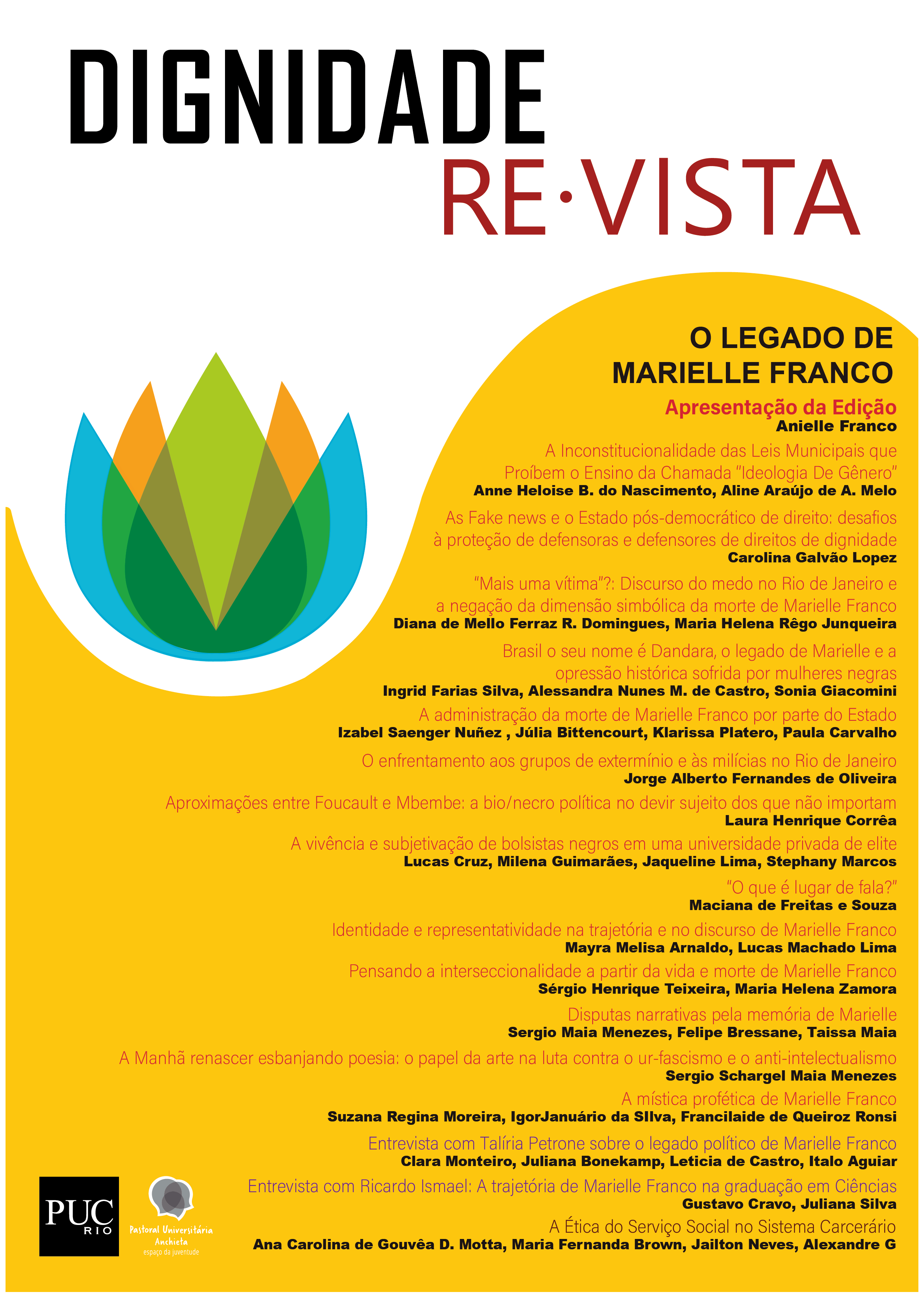Brasil o seu nome é Dandara, o legado de Marielle e a luta por direitos humanos e cidadania para mulheres negras
Palavras-chave:
mulheres negras; discriminação; direitos; representatividade; sexualizaçãoResumo
A vereadora carioca Marielle Franco deixou um legado de luta, em busca da representatividade política das mulheres negras no Brasil. Diante de sua morte violenta, percebe-se como esse grupo social ainda sofre com a falta de acesso à cidadania. O carnaval brasileiro trouxe os holofotes para as heroínas negras e indígenas, inclusive a própria vereadora, no entanto, qual é a origem dessa desigualdade?
Referências
Exame. (21 de março de 2018). Acesso em 25 de março de 2019, disponível em exame.abril.com.br: https://exame.abril.com.br/brasil/noticias-falsas-sobre-marielle-franco-se-espalham-na-internet/
Fanon, F. (2008). Pele negra máscaras brancas. Salvador: EDUFBA.
Giacomini, S. M. (1988). Mulher e Escrava: Uma introdução histórica ao estudo da mulher negra no brasil. Rio de Janeiro: Vozes.
Gonzalez, L. (1984). Racismo e Sexismo na cultura brasileira. Ciências Socia Hoje , 223-241.
Hooks, B. (2015). Mulheres Negras: moldando a teoria feminista. Revista Brasileira de Ciência Política, nº16 , 193-210.
www.mariellefranco.com.br. (s.d.). Acesso em 20 de fevereiro de 2019, disponível em mariellefranco.com.br: https://www.mariellefranco.com.br/projetos-de-lei-marielle-rio
Downloads
Publicado
Edição
Seção
Licença
Copyright (c) 2019 Dignidade Re-Vista

Este trabalho está licenciado sob uma licença Creative Commons Attribution-NonCommercial-ShareAlike 4.0 International License.
Feita a submissão e uma vez concedida a aceitação de textos propostos à Dignidade Re-Vista, considera-se dada a cessão dos direitos autorais para a revista e fica autorizada a publicação do artigo de forma eletrônica.









